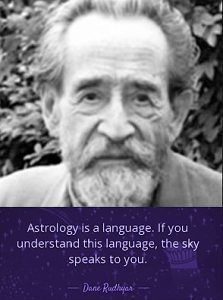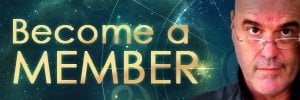What’s it all about?
What is my purpose?
Although we’re led to believe that astrology is about the stars, it’s essentially more about us as living conscious beings looking for meaning and is designed to give us an insight into what our purpose here in life is about. Astrology is a tool for determining what the line of least resistance is in terms of our path forward and is a useful way of identifying our karmic strengths and weaknesses. Through an analysis of your horoscope at the time of birth, it’s a simple matter to see which planets are strong, well aspected, elevated etc and dominating your life.
What is Astrology?
History of astrology

The roots of astrology go back to the dawn of man himself but even as far as 3000 years ago the great Hindu sage Parasara expounded the principles of sidereal astrology also known as Vedic astrology. His monumental work Brihat Parasara Hora Shastra is a classic work and basic reading for any astrologer who wishes to pursue this branch of study. Around the same time in Mesopotamia, the Chaldeans built some of the earliest “observatories” called Ziggurats which were like watchtowers used for stargazing. Some of these were up to 300 feet in height. And it was the Chaldeans who sliced up the celestial sphere into the 12-star signs as we have come to know them.
There were, of course, others not just the Indians and Chaldeans who were practising astrology but the Egyptians and also Babylonians had their own wealth of knowledge to contribute. Later down the historic track around the fifth century BC Chaldeans made their way to Greece and in fact had a great impact on Plato himself. Plato in fact, referred to the visible planets, the Sun and the Moon as visible Gods shows just how much of an affinity he felt for the subject.
Initially, both astronomy and astrology were one and the same with observations that there was some sort of synchronicity between the planetary and stellar movements with events here on planet Earth leading astrology to become deeply aligned with the art of divination, forecasting and other sorts of prognostication. On the other side of the Earth, the Mayans had developed an incredibly sophisticated system of observing and connecting the planets and in particular Venus to the events locally. They had even forecast highly accurate calendars and these are almost as accurate as any produced today by modern astronomers.

After the 18th-century astrology tended to give way to the new scientific methods and this is when astronomy and astrology started to part ways. Prior to this astrology was seen more as a fatalistic doctrine probably because the individual was not is capable of asserting his uniqueness. As this individualism began to grow people obviously felt a greater sense of autonomy so both on a scientific and individual level there was a move away from this concept of predestination to self-determination.
Types of Astrology
There are many divisions of astrology and several of those branches include
Natal astrology, which is the study of one’s birth chart at the precise time and place of birth
Medical astrology or what is otherwise known as Astro-pathology deals with the diagnostics of health and disease and even discusses ways in which the person can be healed. This is also similar to the Hindu Vedic astrological concept which goes even further in utilising such things as propitiatory methods, appeasing the planets, charitable works and other ritualistic actions which can somehow neutralise the influence of these planetary forces on one’s life.
Horary astrology, the fascinating branch dealing with the answering of questions and preparation of horoscopes for the precise moment a question is asked. Political and mundane astrology deal with the horoscopes of nations and political leaders and deal with the historic trends of a country as well as the environment for example, the prediction of earthquakes, pestilence, floods and even economic modulations. Wars, treaties and other political developments seem to follow astronomical trends for example lunations and in particular solar and lunar eclipses.
Political and mundane astrology deal with the horoscopes of nations and political leaders and deal with the historic trends of a country as well as the environment, for example, the prediction of earthquakes, pestilence, floods and even economic modulations. Wars, treaties and other political developments seem to follow astronomical trends for example lunations and in particular solar and lunar eclipses.
Plotting major events throughout history does seem to correlate more or less to these celestial events and more recently connections to the sunspot cycle are being investigated to see how this can impact on humans as for example an increase in heart disease, strokes et cetera during these sunspot peaks and troughs. There is a growing body of evidence to suggest that astrology does in fact, express the intimate link between the course of human life and planetary movements.
[/vc_column_text][vc_column_text]I am text block. Click edit button to change this text. Lorem ipsum dolor sit amet, consectetur adipiscing elit. Ut elit tellus, luctus nec ullamcorper mattis, pulvinar dapibus leo.[/vc_column_text][ww-shortcode-gap height=”60″][vc_column_text]Latest from Astrology.com
All the latest News from the Astrology Blog for your well-being
[/vc_column_text][ww-shortcode-gap height=”30″][ess_grid alias=”blog4panel”][/vc_column][/vc_row]












